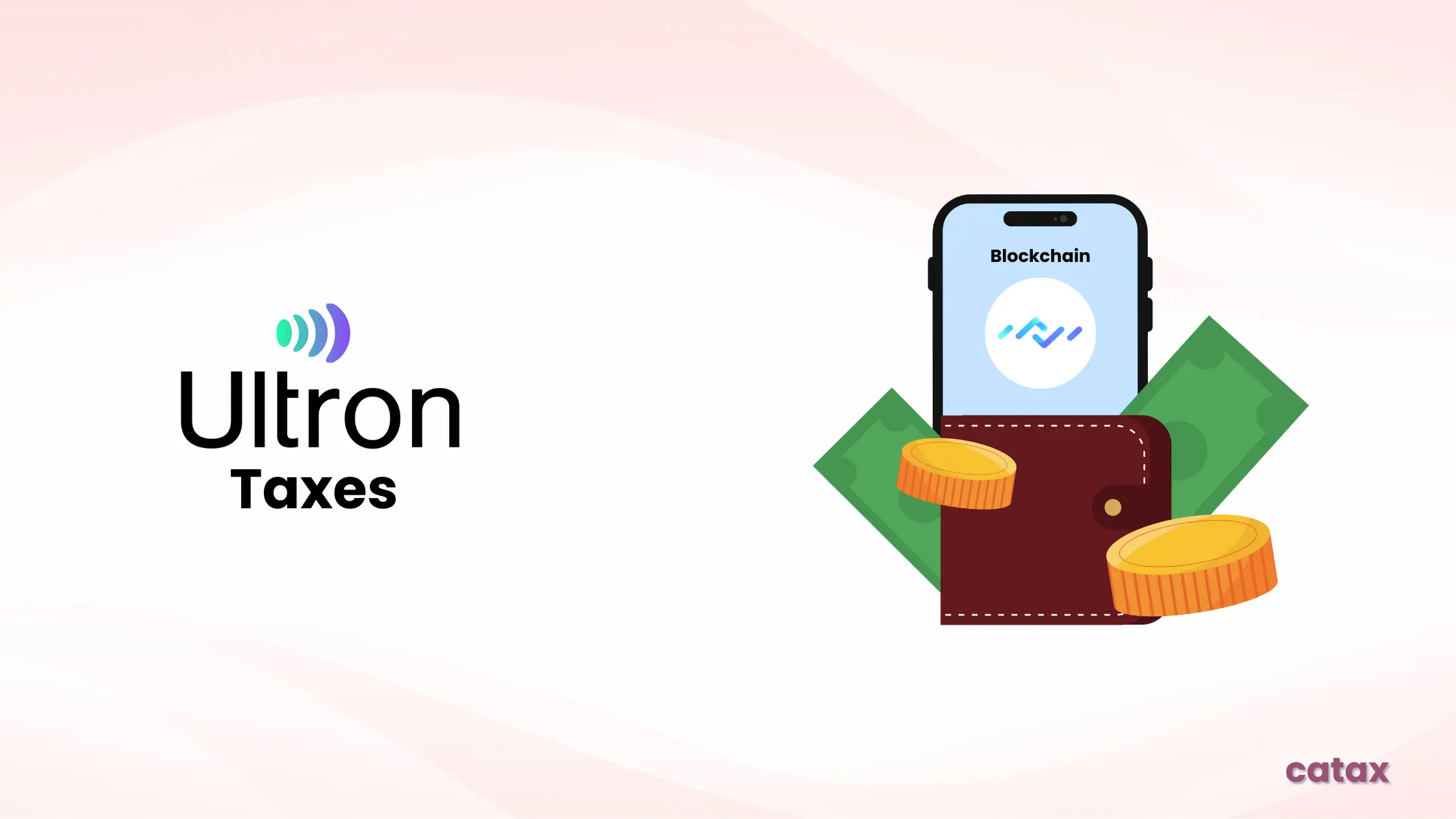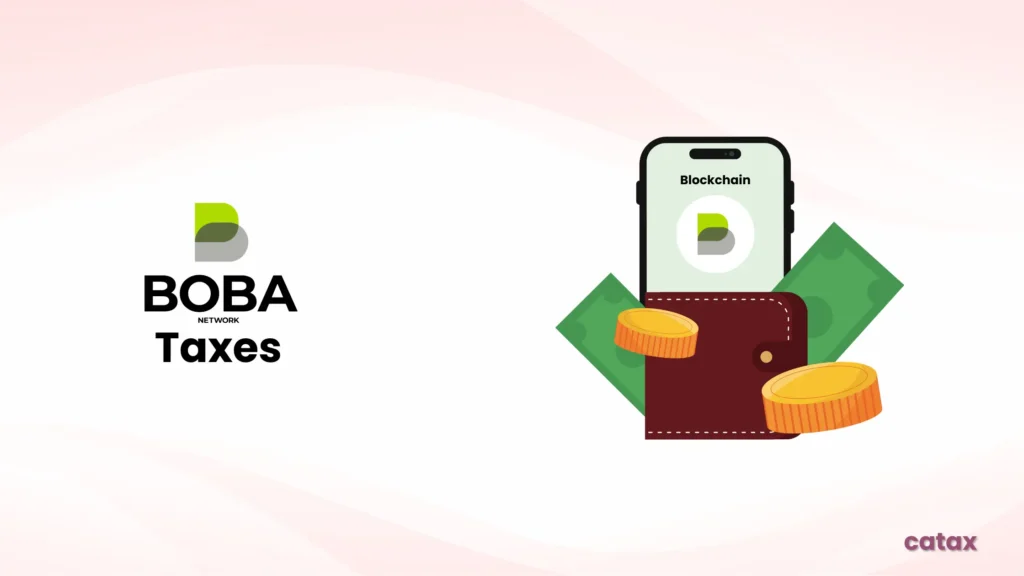Understanding how taxes work for Ultron transactions is important, especially since rules can vary depending on where you live. Whether you buy, sell, trade, or stake Ultron, it’s essential to know how tax authorities handle these actions.
This guide will break down the tax rules for Ultron in simple terms, so you can easily keep track of your taxes and stay on the right side of the law.

How to Connect Your Ultron Wallet to Catax
Tracking your Ultron transactions and calculating taxes is easy when you connect your wallet to Catax. Follow these simple steps:
- Open your Ultron wallet or use a supported wallet like MetaMask, Trust Wallet, or Ledger.
- Copy your wallet’s public address.
On Catax:
- Log in and select your country.
- Choose Chain, then search for Ultron Wallet.
- Paste your wallet address and click Connect.
Once you connect your wallet, Catax will automatically track your Ultron transactions, making tax calculation simpler and more accurate.
Calculate My Taxes ➤Are Ultron Transactions Taxable?
Yes, most countries treat Ultron transactions as taxable. Governments usually classify Ultron as property, income, or capital assets, depending on how it is used.
When Do You Need to Pay Taxes?
You may need to pay taxes when you:
- Sell for a profit: If you sell Ultron for more than what you paid, you will owe capital gains tax on the profit.
- Trade for other cryptos: If you trade Ultron for another cryptocurrency, this may trigger a taxable event.
- Use for purchases: Spending Ultron on goods or services might lead to capital gains tax if its value has gone up since you bought it.
- Earn from staking: If you stake Ultron and earn rewards, many countries will tax staking rewards as income.
- Receive as payment: If you receive Ultron for work or services, it will typically be treated as taxable income, and taxed at its market value when received.
Since tax laws vary by country, always check how your local tax authorities treat Ultron transactions.
Can You Deduct Trading Fees and Other Costs?
Many Ultron traders wonder if they can deduct costs like trading fees or transaction charges. The answer depends on your country’s tax laws.
In some countries, you can deduct:
- Trading fees paid when buying or selling Ultron.
- Transaction fees for sending Ultron from one wallet to another.
- Security costs, like buying hardware wallets or using multi-signature protection.
Other countries may only let you deduct the cost of buying Ultron, meaning you can subtract the price you paid for it when selling but can’t deduct transaction fees.
It’s important to check your local tax rules to know what deductions you can claim.
How Is Ultron Taxed Based on Holding Period?
The tax rate on profits depends on how long you hold your Ultron before selling. Many countries treat short-term and long-term holdings differently:
- Short-term holdings (less than a year): These are usually taxed at higher rates, similar to income tax.
- Long-term holdings (more than a year): Some countries offer lower tax rates for long-term investments to encourage holding assets.
- Flat tax rates: Some countries apply a flat tax rate on all profits, no matter how long you’ve held the Ultron.
Knowing the rules for short-term vs. long-term holdings in your country will help you plan your taxes and possibly reduce what you owe.
You can also check out our Country-Specific Guide for Crypto in Your country. This guide provides insights on regulations, tax implications, and compliance measures breifly explained for each country.
How Is Staking Income Taxed?
When you stake Ultron, you might earn rewards. These rewards are taxed differently depending on your country. Some governments tax staking rewards right away, while others only tax them when you sell or exchange them.
How Different Countries Tax Staking Rewards
- Taxed as income: Some countries treat staking rewards as earned income, so you pay taxes when you receive them. This is taxed at your regular income tax rate.
- Taxed as capital gains: In some countries, staking rewards are taxed only when sold or exchanged, meaning you only pay taxes on the profit when you sell them.
If you stake Ultron, make sure to check how your country taxes staking rewards so you don’t get caught off guard.
Can You Claim Ultron Losses for Tax Benefits?
Not every Ultron trade results in a profit. If you sell at a loss, you may be able to reduce your taxes.
How Different Countries Handle Crypto Losses
- Loss offsets: Some countries allow you to offset losses against any taxable profits, meaning you only pay taxes on the net gain.
- Loss carryforward: If you don’t have profits to offset your losses in the same year, some countries allow you to carry forward losses to future years and reduce your tax bills in the future.
- Limited deductions: In some countries, crypto losses cannot be deducted, meaning your losses won’t reduce your tax bill.
Keeping good records of your trades will help you accurately report losses and possibly reduce your tax burden.
How to Stay Compliant with Ultron Tax Rules
As crypto tax laws get stricter, it’s essential to stay compliant. Here’s how:
- Understand how your country taxes Ultron transactions: Are gains taxed as capital gains, income, or business income?
- Check if you can deduct fees, staking rewards, and other costs: Different countries have different rules.
- Keep detailed records of all your Ultron transactions, including buying, selling, trading, staking, and spending Ultron.
- Use a crypto tax tool like Catax: Catax automatically tracks your Ultron transactions and helps you report them accurately.
- Consult a tax professional: If you’re unsure about your tax obligations, a tax professional can help you stay compliant.


